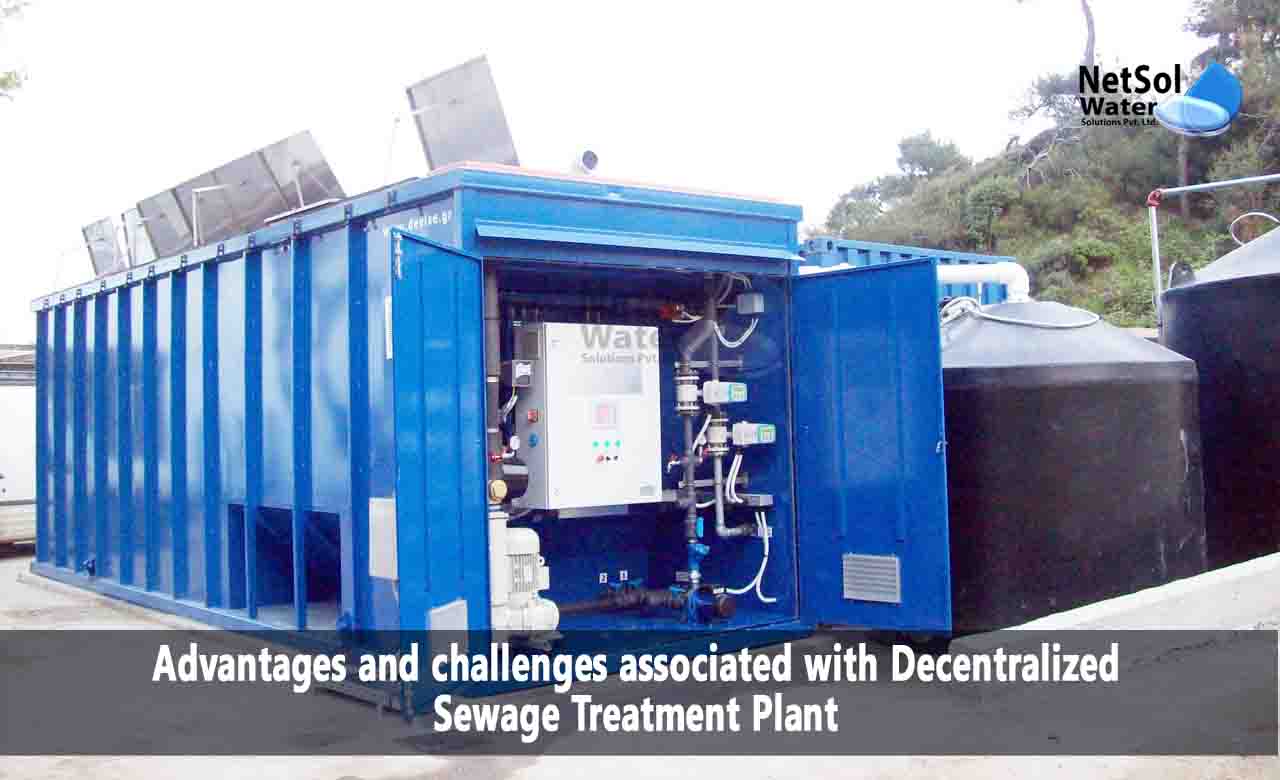Advantages and challenges associated with Decentralized STP Plant
Sewage treatment plays a vital role in maintaining environmental and public health by effectively managing wastewater. Traditionally, sewage treatment plants (STPs) have been centralized systems that serve large urban areas. However, in recent years, decentralized wastewater treatment systems have emerged as an alternative approach.
In this blog, we will explore the advantages and challenges associated with decentralized systems and their potential to revolutionize wastewater management.
Understanding Decentralized Wastewater Treatment Systems
Decentralized wastewater treatment systems are designed to treat and manage wastewater at or near the source of its generation. Unlike centralized STPs, which collect wastewater from a large area and transport it to a central facility, decentralized systems treat wastewater locally, eliminating the need for extensive infrastructure. These systems can be tailored to meet the needs of various settings, including small communities, rural areas, and even individual households.
Advantages of Decentralized Systems
- Cost-Effective: Decentralized systems often have lower capital and operational costs compared to large-scale centralized STPs. They require less extensive piping networks and can be implemented incrementally, making them financially viable for smaller communities or economically challenged areas.
- Flexibility and Scalability: Decentralized systems offer flexibility in terms of design and capacity. They can be easily scaled up or down based on the population size, ensuring efficient treatment while accommodating future growth or changes in demand. This scalability makes them adaptable to diverse geographic and demographic conditions.
- Resilience and Redundancy: Decentralized systems provide a higher level of resilience in wastewater management. Since treatment occurs locally, disruptions in one part of the system do not impact the entire network. This redundancy minimizes the risk of service interruptions, especially during emergencies or natural disasters.
- Environmental Sustainability: Decentralized systems have a smaller environmental footprint compared to centralized STPs. They reduce the need for long-distance transport of wastewater, thus lowering energy consumption and associated greenhouse gas emissions. Additionally, decentralized systems can employ innovative technologies for resource recovery and reuse, contributing to a circular economy approach.
- Local Water Reuse Opportunities: Decentralized systems can facilitate localized water reuse. Treated wastewater can be reused for irrigation, industrial processes, or non-potable applications, conserving freshwater resources and reducing the strain on existing water supplies.
Challenges of Decentralized Systems
- Operation and Maintenance: Decentralized systems require proper operation and maintenance, which can pose challenges in terms of technical expertise and resource allocation. Local communities or entities responsible for system management must be adequately trained and equipped to ensure efficient and continuous operation.
- Regulatory Frameworks: Establishing clear regulatory frameworks for decentralized systems can be complex, especially when dealing with diverse stakeholders and different geographical locations. Developing guidelines, standards, and monitoring protocols that ensure compliance and safety is essential for the successful implementation of decentralized systems.
- Public Acceptance and Perception: Public acceptance and perception of decentralized systems can be a challenge. Building trust and awareness among the community regarding the benefits and safety of these systems is crucial. Transparent communication and engagement are necessary to address concerns and garner support.
- Land and Space Requirements: Decentralized systems require sufficient land or space for the installation of treatment units. This can be challenging in densely populated areas or where land availability is limited. Creative solutions and innovative designs may be necessary to optimize space utilization.
Conclusion
Decentralized wastewater treatment systems offer significant advantages in terms of cost-effectiveness, flexibility, environmental sustainability, and local water reuse opportunities. They provide a decentralized approach to wastewater management, catering to the needs of various communities and settings. However, challenges related to operation and maintenance, regulatory frameworks, public acceptance, and space requirements must be addressed to ensure the successful implementation of decentralized systems. By overcoming these challenges and embracing decentralized approaches, we can create a more resilient, sustainable, and inclusive wastewater management system that benefits both the environment and communities.
Netsol Water is Greater Noida-based leading water & wastewater treatment plant manufacturer. We are industry's most demanding company based on client review and work quality. We are known as best commercial RO plant manufacturers, industrial RO plant manufacturer, sewage treatment plant manufacturer, Water Softener Plant Manufacturers and effluent treatment plant manufacturers. Apart from this 24x7 customer support is our USP. Call on +91-9650608473, or write us at enquiry@netsolwater.com for any support, inquiry or product-purchase related query.



